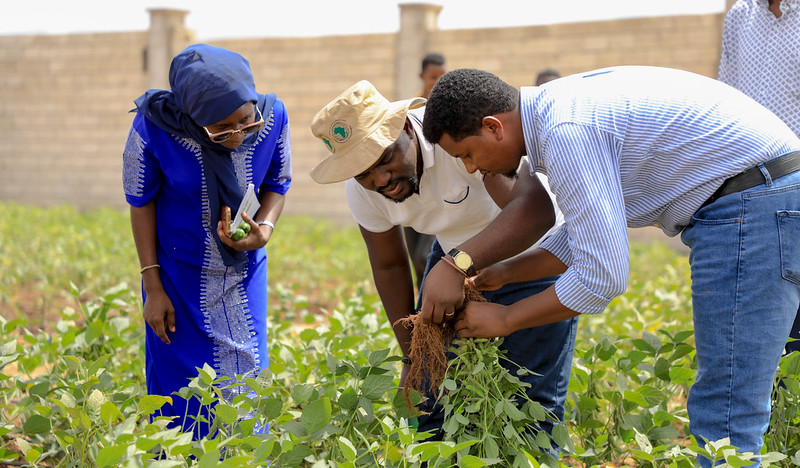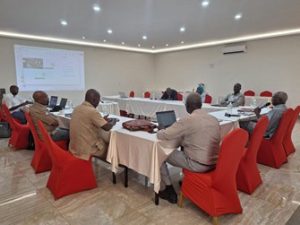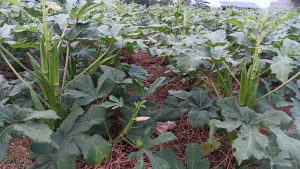How TAAT is building a pathway for Youth in agriculture in Somalia, DRC, Benin, Kenya, and Tanzania

Youth are Africa’s greatest assets for its agricultural transformation and growth. Africa’s youth population is rapidly growing and expected to double to over 830 million by 2050. Home to over 420 million young people, the continent currently boasts of the world’s youngest population.
Young African, men and women, are critical to the transformation of agriculture on the continent and for efforts to ensure food security. Owing to their relative importance, youth and women represent a driving force for Africa’s agriculture.
The African Development Bank (AfDB) reckons that youth employment conveys the potential to fuel inclusive growth for African countries. It is estimated that lowering the youth unemployment rate to that of adults’ would translate to a 10 to 20 percent increase in Africa’s GDP, an increase that could be used to achieve sustained inclusive growth.
Africa’s vibrant youth and women’s resilience present a great opportunity to address the constraints and challenges holding back improvements in agricultural productivity. By leveraging the energy, strength, enthusiasm and dynamism of Africa’s youth and channelling these strengths into more profitable, productive, and competitive agribusinesses, African countries can enjoy increased productivity, enhanced food production system, and increased agricultural incomes.
It is in line with this wavelength of reasoning that the AfDB in 2018 established the Youth in Agribusiness Compact of Technologies for African Agricultural Transformation (TAAT). The youth compact, also known as ENABLE-TAAT (Empowering Novel Agribusiness-led Employment), provides capacity building and technical assistance for the establishment and expansion of youth-led agribusiness enterprises across the continent.
During the mission in May 2023, the TSF/Youth in Agribusiness Team engaged with various stakeholders in the agribusiness sector in Somalia in partnership with the Ministry of Agriculture including engaging with 25 public and private entities during a meeting with the Ministry officials. The compact also visited Zam Zam University and the Somali National University to be able to identify tertiary institutions willing to provide fields for TAAT demonstrations and training as a way of strengthening capacity building of youth in agriculture across the country.
Using the Skill Gap Assessment (SGA) tool, the compact assessed the needs of these institutions and disseminated TAAT knowledge materials along value chains and in the process was able to capture data from 105 youths through QR codes aimed to be of focus during subsequent youth building activities in Somalia. This database of youth will be maintained as will be used to continue developing youth capacity in Agriculture in Somalia. A training on business skills is set to be held soon.
In the Democratic Republic of Congo (DRC), TSF/Youth in Agribusiness Team in collaboration with The Creating Sustainable Youth MSMEs Through Urban Farming (SYMUF) trained and connected 61 youths to high-yielding technologies in Cassava, Poultry, Aquaculture, Soybean, and Vegetable value chains. This capacity-building initiative, which ended on 25 May 2023, aimed to equip the youths with the necessary skills to establish and manage profitable agribusiness ventures. Continuous business coaching will be provided to these youth to ensure the development of bankable business plans and that they can actually sustain their ventures in agriculture.
In South Sudan, the TAAT Youth in Agribusiness Compact was invited by the United Nations’ Food & Agriculture Organization (FAO) to visit their project sites in eastern equatorial Kapoeta and Juba. The compact team identified the need to deploy business plan and management skills in the country’s emergency crops, including Maize, Livestock, Sorghum, and Vegetable, to engage the youth in profitable agribusiness. Youth groups were identified with an approach for further capacity building established and to be strengthened during TAAT implementation.
In Benin, ENABLE-TAAT completed the training of 284 youths through experiential learning on TAAT technologies in Cassava, Aquaculture, Small Ruminants, Maize, and Vegetables. This capacity building on Good Agronomic Practices was conducted using the compact’s agribusiness park in the IITA Benin station. Also, the compact visited the university of Abomey-Calavi to facilitate discussions with the leadership of the faculty of agriculture and used this medium to link 200 youth farmers to TAAT technologies.
In Uganda, ENABLE-TAAT actively took part in an agricultural demonstration and symposium arranged by Ibanda University. The event aimed to highlight the achievements of previous ENABLE-TAAT interventions, and beneficiaries were invited to showcase their successful agribusiness products. These included nutritious porridge made from vitamin A maize, crispy snacks made from OFSP (orange-fleshed sweet potatoes), premium cassava flour, and a silage machine for demonstrating animal feed production using silage. The symposium served as a platform to exhibit and promote thriving youth ventures. Around 650 young individuals attended the symposium, with plans for their engagement in upcoming ENABLE-TAAT activities.
In Kenya, Tanzania and Zambia, ENABLE-TAAT teams located in these countries participated in a series of community events focused on agricultural production technologies and mechanisms to be used that encourage better understanding on how to penetrate markets and gain more customers. This provided an avenue for ENABLE TAAT to link more youth farmers to high-yielding TAAT climate-resilient technologies with complimentary support that helps youth build their portfolios in agriculture as a business. These community outreach events resulted in the registration of 177, 1495 and 170 youths, respectively, while approximately 3,000 youth were reached through various outreach and capacity-building initiatives.
Recent Stories
Related Stories
- TAAT wins National Association of Black Journalists Salute to Excellence Award
- African Development Bank approves phase II of TAAT programme
- TAAT records transformational breakthroughs in African agriculture as Phase I ends
- BENIN: TAAT and partners convene stakeholders for a seed roadmap
- TAAT and the imperatives of food systems transformation in Benin





